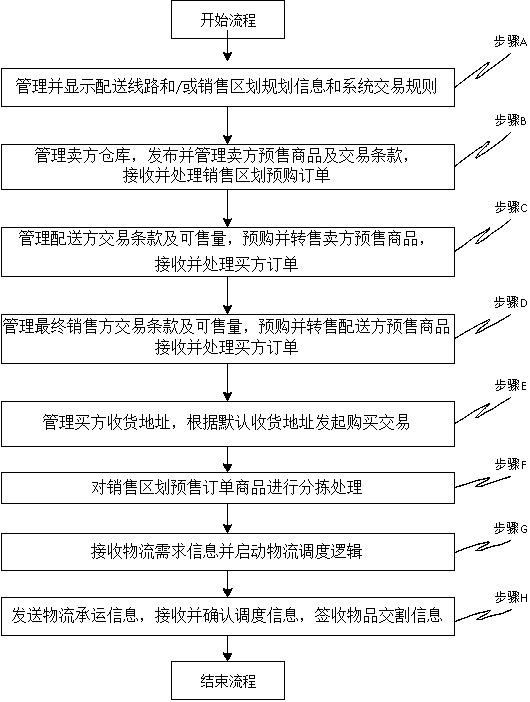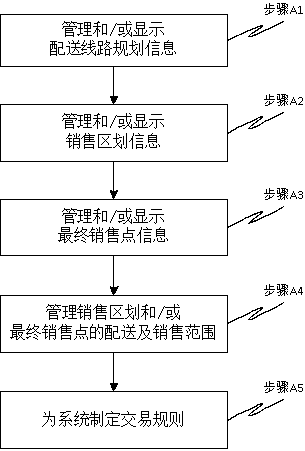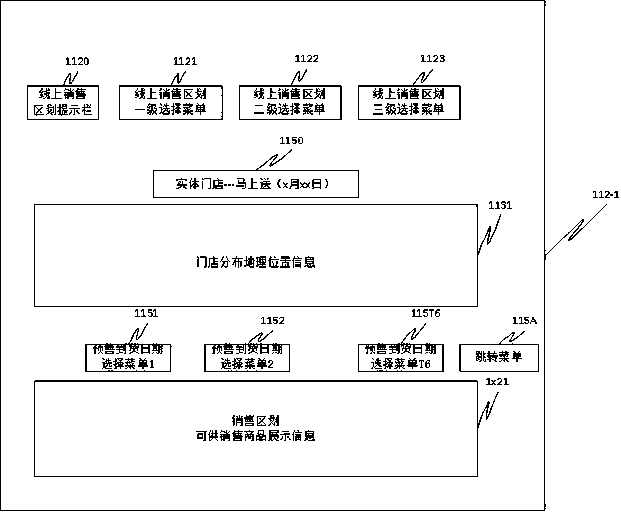Timing supply chain e-commerce final sales system and method
An e-commerce and sales system technology, applied in business, data processing applications, instruments, etc., can solve problems such as no cost advantage, unable to open production lines normally, and no support, and achieve the effect of reducing the time in storage and improving the efficiency of commodity circulation.
- Summary
- Abstract
- Description
- Claims
- Application Information
AI Technical Summary
Problems solved by technology
Method used
Image
Examples
Embodiment Construction
[0058] Such as figure 1As shown, the timing supply chain e-commerce method of the present invention includes: step A, managing and displaying distribution route and / or sales area planning information and system transaction rules; step B, managing the seller's warehouse, publishing and managing the seller's pre-sale commodities and transactions Terms, receiving and processing sales area pre-orders; Step C, managing delivery party transaction terms and availability, pre-purchasing and reselling seller pre-sale products, receiving and processing buyer orders; Step D, managing final seller transaction terms and availability Quantity, pre-purchase and resell the delivery party’s pre-sold products, receive and process the buyer’s order; Step E, manage the buyer’s receiving address, and initiate a purchase transaction according to the default receiving address; Step F, sort and process the pre-sold order products in the sales area , to generate a regional distribution order; step G, ...
PUM
 Login to View More
Login to View More Abstract
Description
Claims
Application Information
 Login to View More
Login to View More - R&D
- Intellectual Property
- Life Sciences
- Materials
- Tech Scout
- Unparalleled Data Quality
- Higher Quality Content
- 60% Fewer Hallucinations
Browse by: Latest US Patents, China's latest patents, Technical Efficacy Thesaurus, Application Domain, Technology Topic, Popular Technical Reports.
© 2025 PatSnap. All rights reserved.Legal|Privacy policy|Modern Slavery Act Transparency Statement|Sitemap|About US| Contact US: help@patsnap.com



